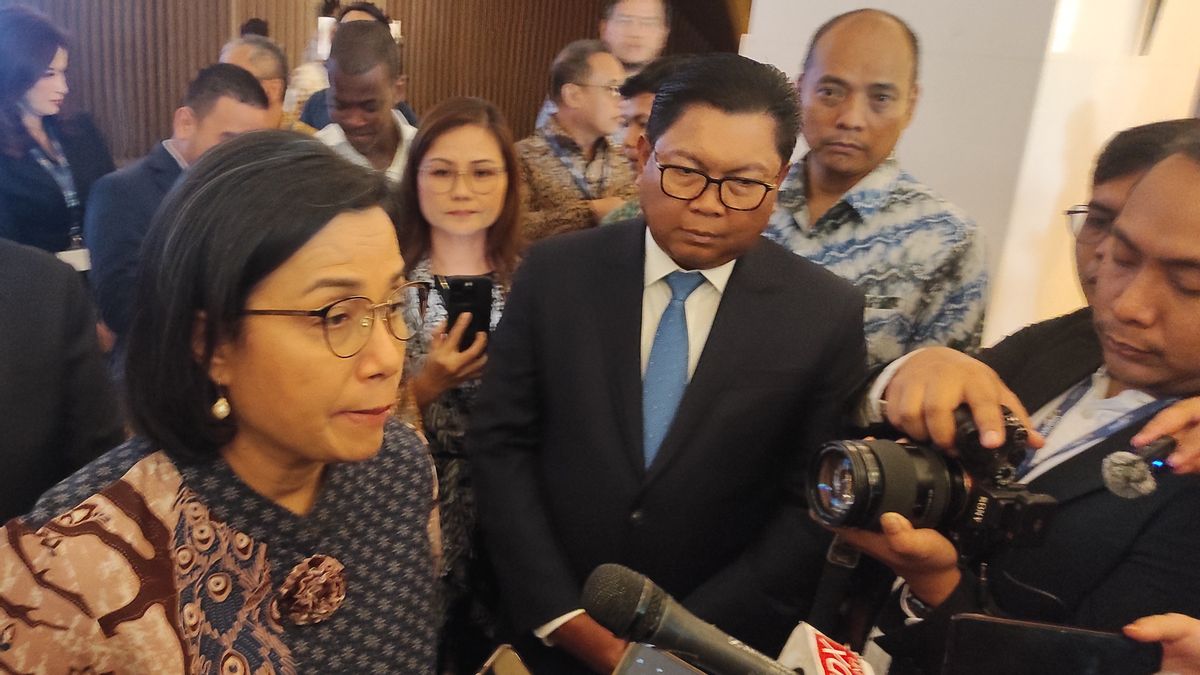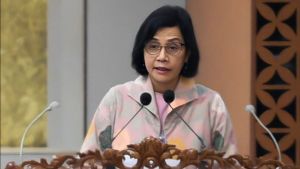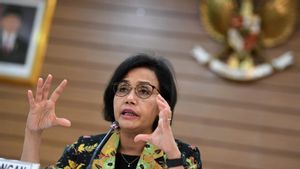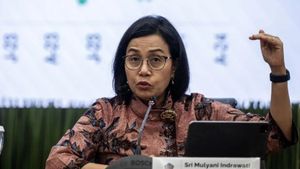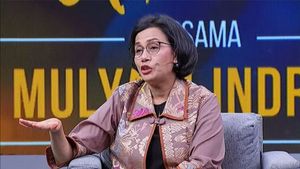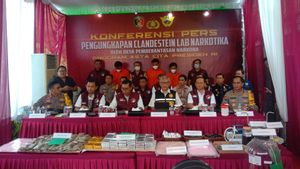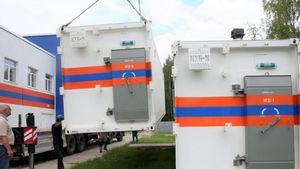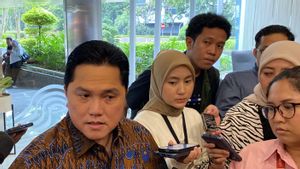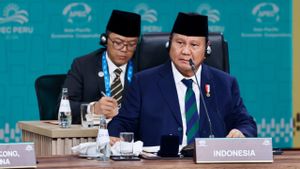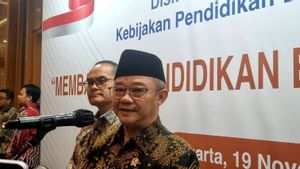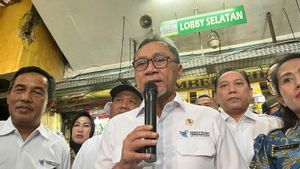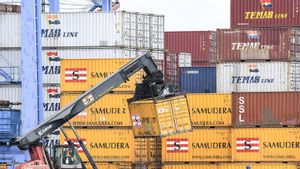JAKARTA - The Ministry of Finance (Kemenkeu) has opened its voice regarding the security of the domestic textile industry due to the rise of imported goods, the government is finalizing regulations related to the imposition of Anti-damping Import Duty (BMAD) and Safeguard Measure Import Duty (BMTP) for industries affected by the invasion of imported goods.
"Regarding the import duty for anti dumping or import duties for protection yesterday, it was held at a cabinet meeting, Earlier several pmk that have been submitted will still be carried out, especially the November deadline is in the process of being extended," said Finance Minister Sri Mulyani Indrawati during a press conference. APBN Kita, Thursday, June 27.
Sri Mulyani said, specifically for the security rules in the fabric sector, there are new rules, but in the form of extending the BMTP policy.
Meanwhile, for the application of BMTP in the textile and product sectors from textiles (TPT) or garment, footwear, electronics, ceramics, and bags requested by the Ministry of Industry (Kemenperin) and the Ministry of Trade (Kemendag), they still have to wait for the details of their letters from the two ministries.
"Later, we from the Ministry of Finance will wait for the letter that will be submitted by the Minister of Trade and the Minister of Industry, and they will also have their letter regulated in laws and regulations, whether government regulations (PP) or laws (UU)," he explained.
According to Sri Mulyani, later the Ministry of Finance will respond with the steps that have been regulated by law by determining import duties or others.
"And we from the Ministry of Finance will respond by taking appropriate steps according to the law whether determining import duties or other measures, we will continue to comply with the regulations that have been regulated in the law," he said.
Sri Mulyani ensured that this restriction policy would continue to be directed to provide fair and fair protection for the domestic industry against competition that is considered unfair and unreasonable.
"This is mainly related to the desire to continue to provide fair and reasonable protection for the domestic industry against competition that is considered unfair and unnatural, especially with the emergence of imports from goods originating from countries that have a fairly large surplus," he said.
On the same occasion, Head of the Fiscal Policy Agency (BKF) of the Ministry of Finance Febrio Nathan Kacaribu said that currently, actually for textile products, the government has provided many fiscal policies, namely security measures or anti- dumping.
Febrio said that the BMAD and BMTP policies are usually related to unfair trades so that they can cause losses to domestic industries due to the surge in import volume.
According to Febrio, specifically for textiles, fiscal instruments that have been implemented by the government are in accordance with global principles on Agreement on Anti-Dumping and Agreement on Guard. In addition, it is also in accordance with PP 34/2011.
Febrio explained that related to textile products, the first trade security measures was in the form of BMAD clothes, in the form of polyester staple fiber. This policy has been implemented many times since 2010 and was finally set again in 2022 which is valid until 2027.
"The first action to secure BMAD's trade against clothing can be applied to the staple fiber polyester many times since 2010 and finally re-determined in 2022 which is valid until 2027 BMAD for fiber clothing products," he said.
In addition, Febrio conveyed that there were some in the form of BMTP on the import of yarn products which were still valid for three to May 2026. Then, BMTP on the import of curtain for 3 years and valid until May 2026. Then there is BMTP on the import of clothing for 3 years which is valid until November 2024.
"Currently, we are also continuing to monitor with K/L regarding whether there has been a spike in imports and we want fiscal instruments to continue to be used to protect the domestic industry and also continue to provide space for the domestic industry concerned to be able to increase its competitiveness," he said.
On the other hand, Febrio said that the Ministry of Finance has also implemented import duties that apply in general, in the form of tariffs from imports of raw materials, or finished products. For textiles, import duties are generally for products in the form of fibers of 0-5 percent, 5-10 percent threads, 10-15 percent Eid cloth, 22-25 percent carpets, 25 percent for curtain tariffs for other textile products, and clothes to be 20-25 percent.
"So this applies in general. Meanwhile, if there is a spike in imports, especially from certain countries, what we do is BMAD and BMTP whose rates can be higher than the general tariff earlier and specifically imported from the country of origin. Meanwhile, we do other products according to existing governance according to the PP that I mentioned earlier," he said.
SEE ALSO:
Febrio added that related to PMK BMTP for cloth products, PMK is currently in the process of being extended.
"So what is existing now ends on November 8, 2022 and we are extending this and then we will finalize it immediately," he explained.
In addition, Febrio said that there is a medandag which is also being revised and is expected to be very supportive of the implementation of the BMTP and his party will continue to coordinate with the relevant K/L to immediately complete the PMK.
The English, Chinese, Japanese, Arabic, and French versions are automatically generated by the AI. So there may still be inaccuracies in translating, please always see Indonesian as our main language. (system supported by DigitalSiber.id)
